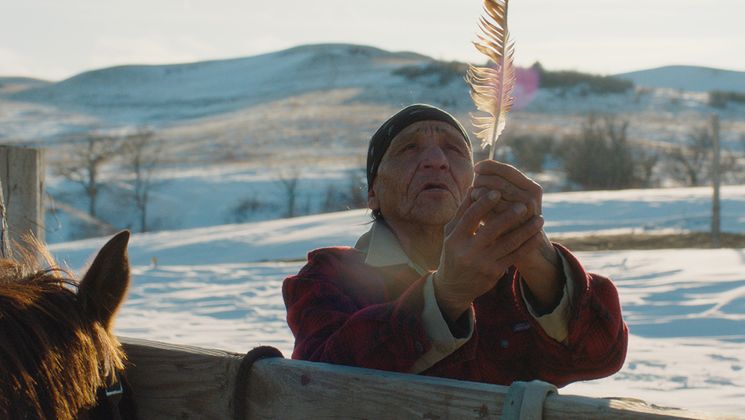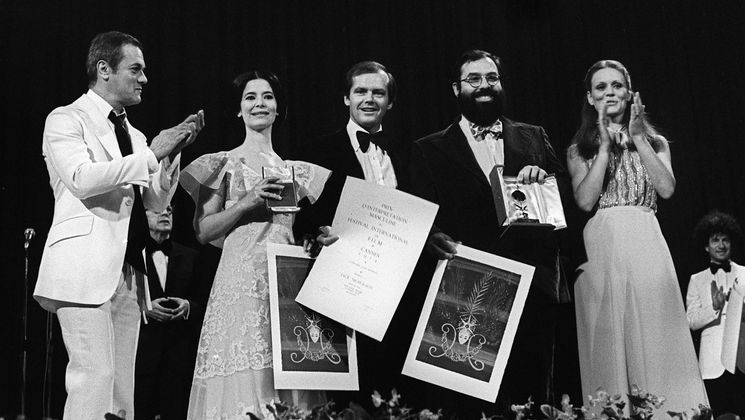
Viva Varda!, Pierre-Henri Gibert’s gleaning project

In Viva Varda!, Pierre-Henri Gibert looks back with intensity on the singular career of Agnès Varda to recall how this this cinema personality, as harsh as she was generous, and profoundly feminist, was able to take her destiny in her own hands and forge her own path, while liberating herself form the diktats of her era. Eventually becoming a role model. The documentary is screened at Cannes Classics in the presence of the director, of Rosalie Varda and of Mathieu Demy.
Why did you choose to devote a documentary to Agnès Varda?
It was the production company Cinétévé that proposed to me that I do this portrait and I accepted immediately because I’ve always loved the myth that Agnès Varda was committed to building around her work. Very quickly, the reality of her journey appeared to me as even more extraordinary. At the end of her life, she was considered a kind of friendly grandmother, a little silly, charming and delightful. Speaking with those who knew her, I understood that the reality was more nuanced. And the more I discovered that she could be antagonistic, complicated and multiple, the more she interested me. Then, I had to find a story that would embrace all this complexity.
How did you prepare the film?
I quickly met Rosalie and Mathieu, her children. I didn’t know how far they were willing to go. It was far from obvious for the family to accept that someone from the outside would come in and construct a story that would necessarily be subjective. I think they understood that my work was well-intentioned and that my being well-intentioned would allow me to take on her personality and her journey with clarity.
“One thing seemed essential: depicting the really exceptional destiny that was hers.“
What was your guiding line?
One thing seemed essential: depicting the really exceptional destiny that was hers. She had a personality that was sometimes abrasive but which demonstrated an exceptional determination. She had a capacity to swim against the current and continue to create in the face of adversity that merits admiration. I think that even though at the end of her life she was able to enjoy an exceptional recognition, that she’s someone who was not sufficiently appreciated because she didn’t conform to the reservedness that was expected of women in the 1950s. Agnès Varda didn’t think that anything was forcing her to stay on the sidelines and she did everything she could to follow her desire. What was interesting was to evoke her personality in all its richness, its complexity, and at the same time offer a comprehensive vision that doesn’t only include her feature films.
You don’t conceal anything of her personality…
She had a real character that mustn’t be toned down, nor made too much of, because I find that all these shocking things that she could say, even distilled to a proper dose, had the capacity to electrify the story of the film. When I had all the footage ready, I focused on the part devoted to Jacques Demy, and I said to myself that if I screwed up this part, which is an essential dramatic arc, I’d screw up the entire film.
Where did the archives come from that you used?
There are obviously the precious archives of Ciné-Tamaris. Rosalie and Mathieu opened up the family collections to us. I also found a lot of INA archives and accounts. She’s someone who was covered a lot in the press and she spoke to them a lot, too, but these archives haven’t often been used. It was absolutely amazing to be able to dig these out. She was in control but there were things that escaped her and I went to go glean them, over here, over there, these little things that she had tried to mask by creating a diversion. There are also extraordinary archives from radio, especially Radio-Canada. The final element was the films themselves. I tried not to pile on excerpts as if I were slathering butter onto bread, but to provide a subjective gaze on the films by showing them in something of an impressionistic manner. On the basis of all this material, I tried to tell a fluid story.
A co-production between Cinétévé, Ciné-Tamaris, ARTE France. With the participation of Ciné +, the CNC, the PROCIREP – company of producers and the ANGOA. Distribution Cinétévé Sales/MK2 Films.


